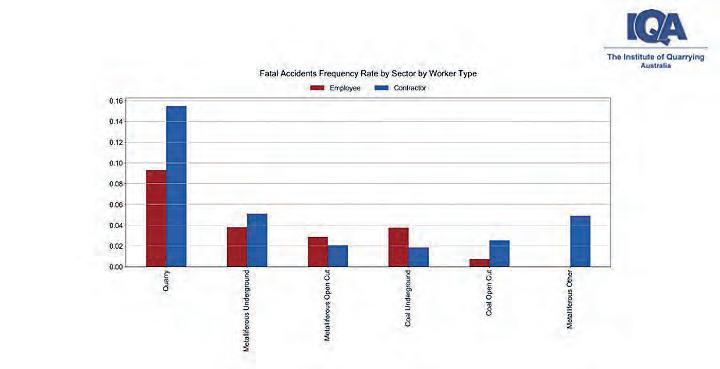
2 minute read
THE KEY MESSAGES OF THE BRADY REVIEW
by Prime Group
REVISITING THE KEY
MESSAGES FROM THE BRADY REVIEW
Jodi Goodall, of Brady Heywood, reviews some of the key concepts and learnings that arose out of a comprehensive review of fatal accidents in Queensland mines and quarries released in early 2020 – and why quarries should heed those learnings.
The Review of all fatal accidents in Queensland mines and quarries from 2000 to 2019, conducted by forensic structural engineer Dr Sean Brady, provided an independent analysis of Queensland’s mining and quarrying fatalities, serious accidents and high potential incidents (HPIs) across a 20-year period.
The report, which was released in February 2020, assessed 47 of Queensland’s mining and quarrying industry-related deaths between 2000 to 2019. There were six fatalities in quarrying across a 20-year period, four being employees and two being contractors. A total of 35,000 incidents were also analysed. Dr Brady calculated the frequency of the deaths, serious accidents and HPIs in terms of incidents per million hours worked.
There were numerous key messages which arose from the Brady Review.
FATALITY CYCLE The industry is moving in a fatality cycle. Past behaviour suggests that in the order of 12 fatalities are likely to occur over any five-year period. This pattern has been evident over the past 19½ years and is characterised by periods where a significant number of fatalities occur, followed by periods where there are few to none. This suggests that the industry goes through periods of increasing and decreasing vigilance (see Figure 1).
The cycle further suggests that the periods with few to no fatalities should be viewed as simply part of the fatality cycle – they are not evidence of the industry becoming safer over the long term. Instead, further fatalities should be expected as the cycle continues.
As a standardised rate, quarrying has the most amount of fatalities by hours worked (Figure 2).
Sean Brady, managing director at Brady Heywood.
Figure 1. Periods of significant numbers of fatalities are often preceded or succeeded by periods with few to no fatalities. Figure 2. The frequency rate of fatal accidents by sector by worker type. As a standardised rate, quarrying has the most number of fatalities by hours worked.
FATALITIES ARE AVOIDABLE There are no smoking guns. A superficial examination of the causes of the 47 fatalities analysed as part of this review gives the impression that many were freak accidents, that events transpired in such a way that could never have been anticipated. This





